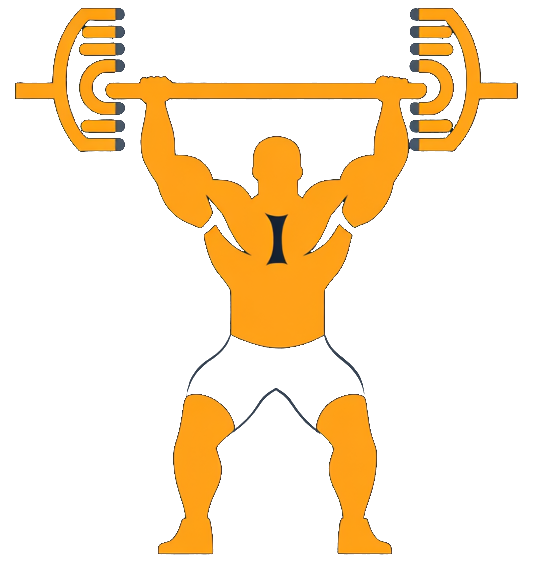The world of CrossFit has witnessed a significant evolution in recent years, primarily driven by the effectiveness of its workout regimes and the community it fosters. In this dynamic environment, the role of a coach extends far beyond mere instruction. Coaches are pivotal in sculpting the CrossFit experience, ensuring safety, motivation, and performance optimization. Emphasizing technique, providing constant feedback, and adapting workouts for various skill levels, they are the backbone of the community.
The Coach’s Role in Shaping the CrossFit Experience
CrossFit is uniquely participative, allowing individuals at varying fitness levels to engage in high-intensity workouts. The role of a coach isn’t merely to lead a session; it’s about cultivating an environment that promotes personal growth and collective success. A great coach can assess each athlete’s capability and provide tailored instructions to help them achieve their personal fitness goals.
Building Trust and Rapport
One of the essential aspects of coaching is establishing trust. When athletes feel comfortable with their coach, they are more likely to push themselves to their limits. Building rapport involves getting to know the athletes on a personal level.
This connection enhances communication, making athletes more receptive to guidance. Coaches often take the time to learn each athlete’s background, their fitness journey, and their objectives. Such personal attention can significantly impact performance.
Prioritizing Safety and Technique
In high-intensity workouts like CrossFit, safety is paramount. Coaches must prioritize proper technique to prevent injuries. They are responsible for demonstrating exercises correctly and ensuring that each athlete understands the nuances of each movement. A coach’s vigilant eye can spot incorrect form and provide immediate corrections.
Moreover, they need to emphasize the importance of a proper warm-up and cool-down routine, which is crucial in reducing the risk of injuries. This proactive approach builds a solid foundation for athletes.
Motivation as a Coaching Tool

Motivation is a significant element in a CrossFit coach’s arsenal. Achieving peak performance in a workout often hinges on an athlete’s mental state. Coaches play a vital role in inspiring athletes to surpass their limits. Their words can uplift spirits during grueling workouts, facilitating a sense of camaraderie and teamwork.
Through positive reinforcement and encouragement, coaches cultivate determination. The energy they exude can be infectious, driving athletes to perform at their best while fostering resilience.
Personalization of Workouts
Every athlete is unique, presenting different strengths and weaknesses. A skilled coach can personalize workouts to accommodate varying fitness levels. They can modify exercises, adjust weights, and create individualized goals tailored to each athlete’s capability.
This personalized approach ensures that all athletes can participate meaningfully in every session, boosting their confidence and engagement while avoiding feelings of intimidation that might arise from overly strenuous tasks.
The Coach as a Community Builder
Beyond individual training, CrossFit coaches are instrumental in fostering a sense of community. They bring people together, creating an environment where athletes support each other, celebrate achievements, and share their struggles. By organizing group workouts and social events, coaches craft an inclusive atmosphere that enhances the overall experience.
This sense of belonging not only motivates athletes but also establishes accountability, ensuring that they remain committed to their fitness journeys.
Ensuring Consistency and Progress Tracking
Coaches are not only focused on the day-to-day workouts but also on the bigger picture of long-term progress. By tracking each athlete’s performance over time, they can identify areas for improvement and adjust workouts accordingly. This ongoing assessment is crucial in helping athletes understand their evolution and maintain motivation.
Progress tracking can involve keeping records of weights lifted, times for various workouts, and other benchmarks. This data-driven approach allows athletes to visualize their improvements, reinforcing their commitment to their fitness goals.
The Coach’s Role in Recovery and Rest

Another vital aspect of a CrossFit coach’s role is educating athletes on the importance of recovery. In the pursuit of fitness, many athletes overlook the significance of rest, which can lead to burnout or injuries. Coaches must emphasize recovery strategies, hydration, nutrition, and sleep to ensure optimal performance.
They have to foster an understanding that rest isn’t a weakness but a necessity in achieving long-term fitness goals. This holistic approach to fitness recognizes the balance between exertion and recovery.
Building a Sustainable Fitness Journey
The ultimate goal of a CrossFit coach is to help athletes develop a sustainable and enjoyable fitness journey. The knowledge imparted by coaches can transform an individual’s approach to fitness, laying the foundation for a lifelong commitment. Through education and empowerment, coaches enable athletes to take ownership of their health.
This sustainable approach encourages athletes to embrace variety in their routines, enjoy the process, and understand that fitness is not a destination but a continual journey of improvement.
In closing, CrossFit coaches embody the role of mentors, trainers, and community builders. Through their guidance, athletes not only improve their fitness levels but also cultivate a supportive environment that fosters personal growth. Each interaction and workout led by a coach can significantly influence an athlete’s journey, making their role essential in shaping the CrossFit experience.
